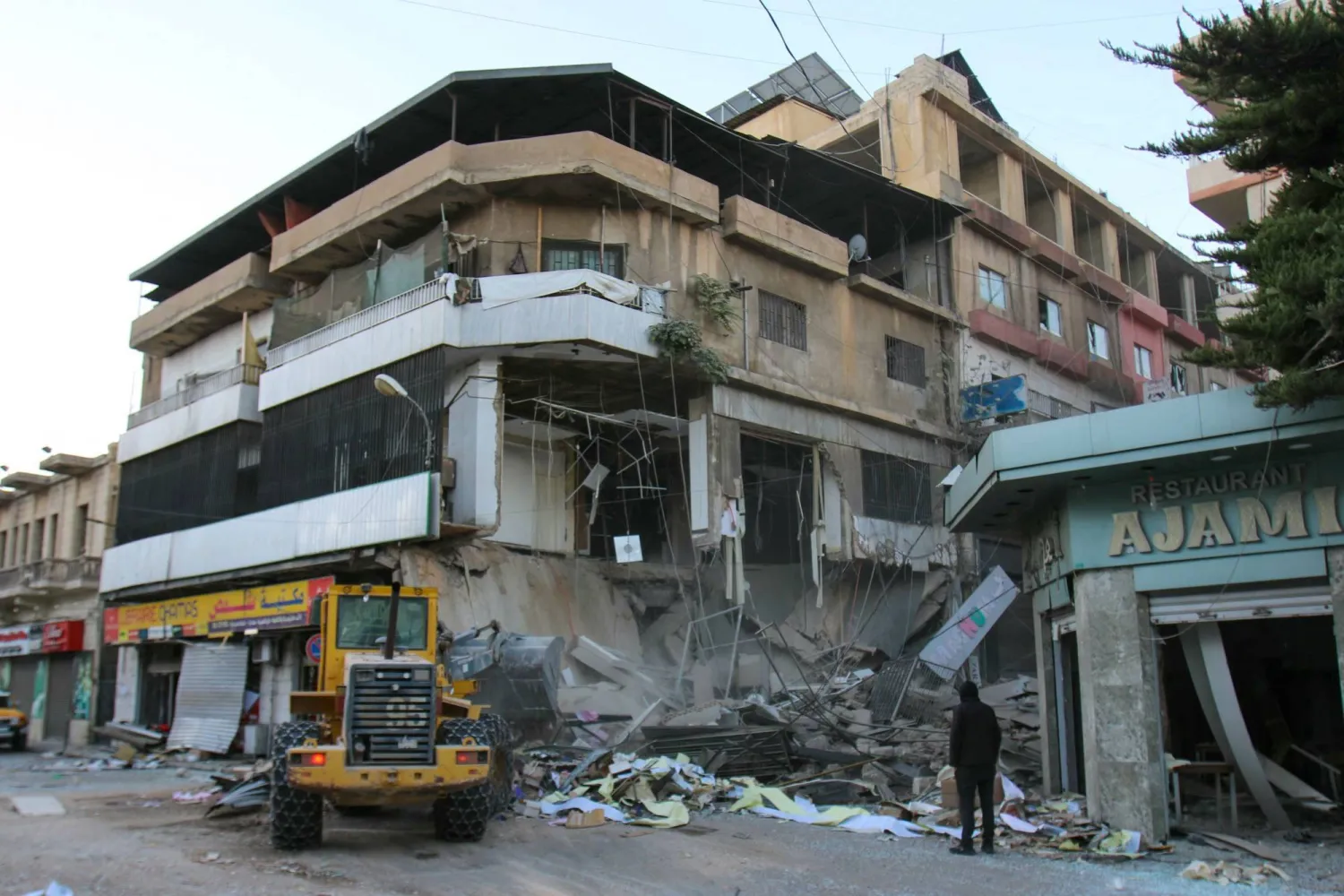Israel’s war on Hezbollah has expanded beyond its military goals of weakening the group's fighting power. It now targets Hezbollah’s social, health, and financial institutions in an effort to break its popular support and weaken its ties to the Shiite community.
Recent Israeli strikes on the financial offices of the “Al-Qard Al-Hassan” Association show that Tel Aviv no longer distinguishes between Hezbollah’s military and civilian operations.
Along with hitting military targets and assassinating key figures like the party’s leader Hassan Nasrallah, Israel is now destroying institutions that have provided vital services to Hezbollah’s base.
Political activist Ali Al-Amin said Israel is not only waging a military war on Hezbollah but also a psychological war on Lebanon’s Shiite community. The goal, he said, is to drive a wedge between them and Hezbollah, making its institutions seem like a burden to avoid.
Al-Amin told Asharq Al-Awsat that many Shiites have relied on Hezbollah’s services—social, health, educational, and financial—especially as the Lebanese state has weakened in recent years.
He added that these institutions have been key to Hezbollah’s control over the Shiite community, providing essential services that helped the group tighten its grip.
“Israel’s destruction of these institutions is aimed at weakening the connection between Hezbollah and the community by targeting social, health, and service aspects,” said Al-Amin.
“This is an attempt to uproot the party from its base, which now fears being near any of Hezbollah's facilities across Lebanon,” he added.
Israel has rendered many healthcare facilities, especially hospitals, inoperable.
This includes Salah Ghandoor Hospital in Bint Jbeil and reduced operations at St. George Hospital in Hadath, southern Beirut, and part of Al-Rasoul Al-Azam Hospital.
Al-Amin pointed out that these attacks have created a sense of insecurity within hospitals and healthcare facilities.
The Shiite community now sees these institutions as a threat rather than a source of safety. He warned that after the conflict, there may be backlash from people who have lost trust in these institutions as safe havens.
Despite the damage caused by the Israeli war, a source close to Hezbollah, who requested anonymity, downplayed its impact on the party’s future and influence.
Speaking to Asharq Al-Awsat, the source stated that while Israel may destroy the Al-Qard Al-Hassan Foundation, it hasn’t eliminated the party’s financial resources, as Hezbollah had prepared for such actions.
They noted that funds are not necessarily kept at the foundation’s branches, adding that “attempting to destroy the party’s finances undermines the resilience of thousands of families who rely on it, especially after the collapse of Lebanon’s banking sector.”
The source insisted that “Israel will not succeed in weakening the strong bond between Hezbollah and the community. In fact, it has only increased the party’s legitimacy and shown that Israel is an aggressive state that violates international law.”
Israel Destroys Hezbollah’s Social Institutions to Undermine Its Support Base

A bulldozer removes debris from the Israeli strike on the Al-Qard Al-Hassan Foundation branch in Baalbek (AFP)

Israel Destroys Hezbollah’s Social Institutions to Undermine Its Support Base

A bulldozer removes debris from the Israeli strike on the Al-Qard Al-Hassan Foundation branch in Baalbek (AFP)
لم تشترك بعد
انشئ حساباً خاصاً بك لتحصل على أخبار مخصصة لك ولتتمتع بخاصية حفظ المقالات وتتلقى نشراتنا البريدية المتنوعة







